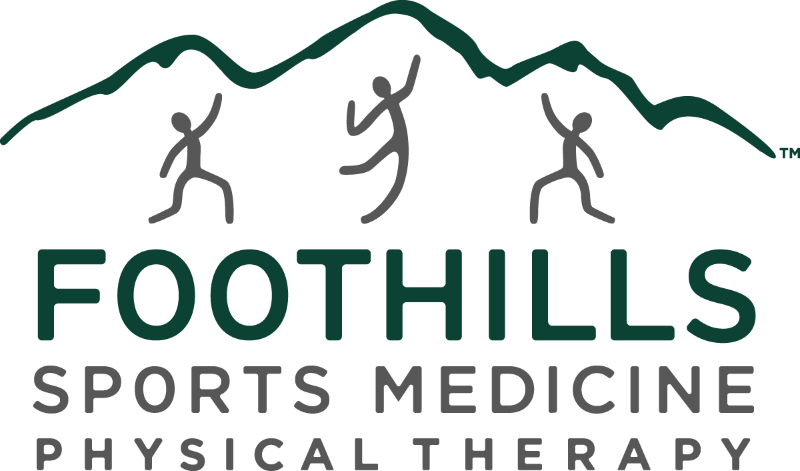The ancient Greek physician Hippocrates once wisely declared, “Let food be thy medicine and medicine be thy food.” Since then, advances in the areas of science and nutrition have supported what Hippocrates knew thousands of years ago: what you eat has a direct correlation with your physical health.
March is National Nutrition Month—a month meant to remind us of the important role nutrition plays in our athletic performance and overall well-being. It’s a time to refocus and turn your attention back to eating well so you not only look good but feel good too. Proper nutrition can ensure that you perform to the best of your abilities athletically and spend less time recovering in our physical therapy clinic, all from being conscious and mindful of what you’re consuming.
Proper nutrition can:
- Increase Athletic Performance. Formula 1 drivers wouldn’t put regular 87 octane gas in their cars before a race. Similarly, a marathon runner wouldn’t gorge themselves on Burger King before running a marathon. In order for your body to function at optimal performance, it should be fueled by premium fuel. Instead of foods laden with empty calories, fats, and sodium, athletes should focus on consuming real whole foods that benefit the body like lean proteins and carbohydrates that are low glycemic index (GI) or “complex” carbohydrates. Lean protein from sources like chicken, fish, or legumes help repair muscle tissue after strenuous exercise, and low GI carbohydrates like sweet potatoes and brown rice are broken down and absorbed slowly to produce the steady energy your body needs.
- Decrease Recovery Time. In addition to improved athletic performance, proper nutrition can impact the time you spend in our physical therapy clinics recovering from injury. Inflammation is our body’s way of responding to injury or something foreign in the body. Eating properly can actually decrease inflammation that damages tissues, impacts joints and arthritis, and impedes recovery. Eating foods like those found in the Mediterranean diet, consisting of fruits, leafy green vegetables, fish, nuts and seeds, and olive oil, has been shown to decrease inflammation which creates an easier path to recovery.
- Fight Off Sickness & Disease. The pH scale runs from 0, being the most acidic, to 14, being the most alkaline. A pH of 7 is considered neutral. A healthy body should be slightly alkaline, with a blood pH level at around 7.4. However, eating a diet of highly processed acidic foods can throw off your pH level and provide the perfect environment for inflammation, sickness, and disease. Foods that promote an acidic environment include alcohol, those laden with sugars or artificial sweeteners, highly processed foods, or those fried or cooked at high temperatures, altering their chemical structure. They encourage the same inflammation that impedes recovery and promotes injury, and sickness and disease which thrives in an acidic environment. Eating a healthy diet that promotes a balanced pH level can help combat these issues.
What to do:
- Eat Real Food. Being mindful of your nutrition can seem easy, but it’s actually quite difficult in today’s environment. Avoiding fast food is a first step in the right direction, but even foods marketed as “healthy” can be processed junk in disguise. The best way to ensure you’re eating real, whole foods is to read labels. If there are a ton of ingredients that you can’t pronounce, it usually means that the food has been refined, processed, or has had a ton of chemicals added to it. Opt for real foods like fruits, vegetables, nuts, whole grains, and protein sources from legumes, fish, and chicken. Making your own meals ensures that you know exactly what ingredients went into it. While it may seem like more work having to prepare your food, there are plenty of resources like Pinterest and healthy cookbooks with no-fuss, yet tasty recipes.
- Avoid These Foods. (Alright, you don’t necessarily have to avoid them altogether, but be aware of what you’re putting into your body and consume in moderation.) Limit eating sugar and high GI simple carbohydrates like refined flour found in breads, cereals, and pasta. These foods are broken down quickly giving you a burst of energy, spiking your blood sugar and insulin levels, and causing a crash later. Monitor your sodium intake as well as trans fats, and avoid artificial sweeteners altogether—they provide no health benefits, are chemical laden, and throw off the body’s natural hormones. Most of these ingredients are found in fast food, prepackaged and processed foods, and “diet” foods. In addition to promoting weight gain, eating these ingredients can also lead to diabetes, heart disease and a myriad of other health issues.
If you would like more information on how to keep your body functioning at optimal performance, please contact your local Foothills Sports Medicine Physical Therapy clinic today!
Sources/research used:
https://www.health.harvard.edu/staying-healthy/foods-that-fight-inflammation
https://www.athleticsweekly.com/performance/nutrition-diet-can-affect-injury-1735




